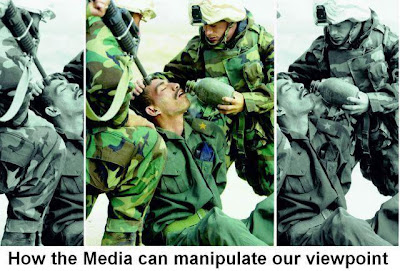 |
| Eskimo Tent Ring |
Last year I read a
claim from Dutch professor Ton Begemann in which he said in the past there used to be agriculture just 1000 km (600 miles) away from the North Pole, close to “Tranquilly Fjord” (actually the place is called
Tanquary Fiord).
He says in August 2008 he visited two archaeological sites where Canadian Park Services have been doing research, and according to Begemann the Canadians told him :
- Paleo-Eskimo groups of the Independence I culture lived in the area 1500 to 4000 years ago.
- 1500 years ago, they survived from hunting (both on land and ice)
- But 4000 years ago they did not just hunt, but also practiced agriculture.
- The Paleo-Eskimo left remains of stone structures in which plant material was found, and from this the Canadians deducted the people practiced agriculture.
Begemann says the agriculture proofs there’s huge natural variation in Arctic temperatures without CO2 playing a role in it. (A bit of a fallacy itself, but let’s focus on the agriculture)
I found his Artic-farming claim too absurd to give it much attention and assumed he must have misunderstood something when the rangers talked about the sites. But as Ton Begemann keeps insisting the Paleo-Eskimo were practicing agriculture and growing crops, maybe it’s useful to have a closer look at the case.
There are several reasons I found this story hard to believe :
Cultural Reasons : As far as I know, agriculture never was very widespread amongst indigenous people in Northern America, and certainly not in the High North. It would be strange they developed it ‘de novo’ in such a hard climate.
Climatological : The location Begemann visited is situated on Canada’s northernmost island :
Ellesmere Island. The Tanquary Fiord sites he visited are located in Quttinirpaaq national park. The
closest weather station near Tanquary Fjord is located in
Eureka and both are roughly located on the same latitude. The shores of the Fiord are free from snow and ice in summer and there is some plant life in this short season. Nevertheless, this place is as polar as you can get. In the present era there are only three months in summer in Eureka with an average temperature above 0° C. The
website of Quttinirpaaq park gives a brief overview of al the challenges a vegetation faces in such an artic area.
4000 years ago the peak of the
Holocene Climate Optimum was running to an end and temperatures were in the same range (maybe a little higher) than today. But even if we assume the average temperatures were slightly higher, summer was short and still very cold and therefore limiting growth speed. So even with slightly higher temperatures this certainly wasn’t a suited location for growing crops. When asked which crops the Paleo-Eskimo supposedly cultivated, Ton Begemann called that question irrelevant.
In fact, many people questioned Begemann about his strange Artic-agriculture claim and if he’s really sure he’s right. All he answers is : “i don’t know why i have never read about Arctic farming except in my own writings. But if you don’t believe me, ask the Canadian Park Services”. So that’s what I did.
The reply from Canada didn’t surprise me :
- The people of the Independence I culture raised stone rings around their skin tents.
- They were hunters, mainly for terrestrial mammals like musk-oxen and caribou (and any other occasional prey they could catch).
- They never practiced agriculture
- More generally : Arctic people never practiced agriculture.
- They burned heather and dwarf-willow (and maybe other things) for fuel
I didn’t really ask the park services what the recovered plant residue was used for, but i guess there could be a a variety of reasons : maybe it was some remains from the fires they made, maybe they used some edible plants to spice up their diet, maybe they used it as a kind of matrass. Whatever. They did not practice agriculture. Probably the park rangers did say something about harvesting (non-cultivated) plants and Begemann misinterpreted this as a sign growing crops.
.jpg) Omdat het jammer zou zijn dat dit nieuws verborgen zou blijven in de comments sectie : gepensioneerd KNMI-onderzoeker Gerbrand Komen heeft als eerste een aantal genuanceerde kanttekeningen geplaatst bij Marcel Crok’s boek ‘De staat van het klimaat’.
Omdat het jammer zou zijn dat dit nieuws verborgen zou blijven in de comments sectie : gepensioneerd KNMI-onderzoeker Gerbrand Komen heeft als eerste een aantal genuanceerde kanttekeningen geplaatst bij Marcel Crok’s boek ‘De staat van het klimaat’..jpg)




.jpg)


.jpg)